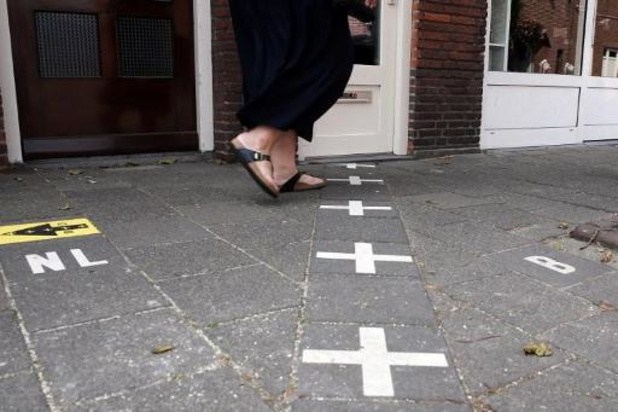The Netherlands will go into a "strict lockdown" from midnight to stave off the rising coronavirus infections, but Belgium does not seem to be considering the same stricter rules.
Dutch Prime Minister Mark Rutte will announce a strict lockdown at 7:00 PM, but a large part of the content already made it to the press, including measures such as the closure of schools, non-essential stores, museums, hairdressers and theatres. Like in Belgium, bars and restaurants in the country had already been closed for some time.
The increase in the number of coronavirus cases in the Netherlands, with nearly 10,000 new infections per day according to Dutch official figures, was called "worrying" by the Health Department last week.
While virologist and interfederal Covid-19 spokesperson Steven Van Gucht understands why the Netherlands is now using the "emergency brake," Belgium should not necessarily follow their example, according to him.
"The preliminary process is different," he told Het Nieuwsblad. "The Netherlands ended up on a plateau a little earlier than we did, and now the curve is going steeply upwards again. It is more like how it was [in Belgium] in mid-October."
Related News
- Dutch warned to stay out of Belgium as lockdown looms
- Netherlands prepares for far-reaching coronavirus lockdown
- Stricter Covid-19 measures would just hit rule followers, Marc Van Ranst warns
While the Dutch testing strategy is similar to the Belgian one, 522 infections per 100,000 inhabitants were confirmed over the past two weeks in the Netherlands, compared to 225 in Belgium, according to the ECDC's latest figures.
As Dutch shops will close tomorrow while the Belgian ones remain open, Van Gucht has warned the Dutch not to cross the border for non-essential shopping, like Belgians did when the situation was reversed.
According to Van Gucht, the differing rules for shops in neighbouring countries illustrates why there should be a common approach based on the same thresholds.
"It is very difficult to explain why the shops are open on one side [of the border] and closed on the other," he said on Flemish radio.
However, the border traffic is not the main culprit for the rising figures in the Netherland, according to Van Gucht, who said you cannot look to just one kind of activity for that.
"[In Belgium], too, we see that some of the infections happen at school, some at work, and then there are a lot of outbreaks in families," he said.
Some of the measures currently in force in Belgium are still stricter than the new ones in the Netherlands, however.
The Dutch government is not expected to announce a curfew, and while the Dutch are discouraged from visiting each other, it is not forbidden, and households can receive two visitors.
On top of that, an exception is made for Christmas, when one extra person is temporarily allowed to visit, so a total of three people are allowed to visit.
"However, limiting social contacts is a very important measure," said Van Gucht. "We must continue to explain why this is so crucial in terms of the number of infections. It is difficult to control, but it really makes a difference."
Even though the number of infections in Belgium has now risen for the second day in a row, the curve is still mainly flat, according to Van Gucht.
"It is still a big question mark whether it will rise or fall again," he said. "I still hope that the Christmas holidays will calm the figures down a little."
In Belgium, the Consultative Committee will meet on Friday to evaluate the coronavirus figures and assess the epidemiological situation.
Maïthé Chini
The Brussels Times

